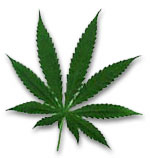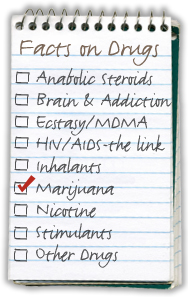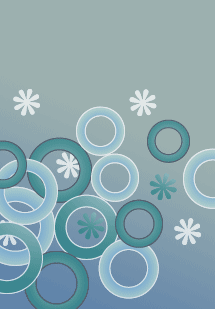Marijuana
What Are the Long-Term Health Effects of Marijuana Use?

The list of negative effects from using marijuana goes on and on. Here are a few examples:
The Brain
Some studies show that when people have smoked large amounts of marijuana for years, the drug harms mental functions. Heavy or daily use of marijuana affects the parts of the brain that control memory, attention, and learning. A working short-term memory is needed to learn and perform tasks that call for more than one or two steps. Long-term users report less life satisfaction, poorer education and job achievement, and more interpersonal and mental health problems compared to non-users.
Marijuana also may affect your mental health. Studies show that early use can increase the risk of developing psychosis [a severe mental disorder in which there is a loss of contact with reality, including false ideas about what is happening (delusions) and seeing or hearing things that aren’t there (hallucinations)] in adulthood in individuals having a genetic or other vulnerability to the disease. Also, rates of marijuana use are often higher in people with symptoms of depression or anxiety—but which came first can be difficult to determine, and whether they are causally related is not yet known.
Lungs and airways
People who abuse marijuana are at risk of injuring their lungs through exposure to respiratory irritants and carcinogens found in marijuana smoke. The smoke from marijuana contains some of the same substances found in tobacco smoke; plus, marijuana users tend to inhale more deeply and hold their breath longer, so more smoke enters the lungs. [3] Not surprisingly, marijuana smokers have some of the same breathing problems as tobacco smokers—they are more susceptible to chest colds, coughs, and bronchitis than nonsmokers. However, whether marijuana use increases the risk for lung and other cancers is not yet determined.
Addiction
Most people don’t think of marijuana as addictive—they are wrong. Marijuana increases dopamine, and once that happens, a user may feel the urge to smoke marijuana again, and again, and again. Repeated use could lead to addiction—a disease where people continue to do something, even when there are severe negative consequences involved, like when their relationships at home, school, work, or with friends suffer. In 2006, the majority of youth (age 17 or younger) entering drug abuse treatment reported marijuana as their primary drug abused.
Marijuana users can also experience a withdrawal syndrome when they stop using the drug. It is similar to what happens to tobacco smokers when they quit—people report being irritable, having sleep problems, and weight loss—effects which can last for several days to a week after drug use is stopped. Relapse is common during this period, as users also crave the drug to relieve these symptoms.
Does Marijuana Lead to the Use of Other Drugs?
While most marijuana smokers do not go on to use other drugs, long-term studies of high school students and their patterns of drug use show that few young people use other illegal drugs without first trying marijuana. For example, the risk of using cocaine is much greater for those who have tried marijuana than for those who have never tried it. Using marijuana puts children and teens in contact with people who are users and sellers of other drugs. So, a marijuana user may be more likely to be exposed to and urged to try other drugs. The effects of marijuana on the brain of adolescents—still a work in progress—may also affect their likelihood of using other drugs as they get older. Animal studies suggest this to be true, but it is not yet demonstrated in people.
If a Woman Is Pregnant and Smokes Marijuana, Will It Hurt the Baby?
Doctors advise pregnant women not to use any drugs, because they could harm the growing fetus. Studies of children born to mothers who used marijuana indicate that there may be subtle effects on intellectual development and attention, and it may affect the likelihood of marijuana use as the child gets older. But researchers are not yet certain whether problems caused by early exposure to marijuana will remain or get worse as the child grows into adulthood.
What About Medical Marijuana?
Under U.S. law since 1970, marijuana has been a Schedule I controlled substance. This means that the drug has no approved medical use. However, there are medications containing synthetic THC, the main active ingredient in marijuana, that are used to treat nausea in cancer patients undergoing chemotherapy, and to stimulate appetite in patients with wasting syndrome—severe, involuntary weight loss—due to AIDS.
Since the discovery of the cannabinoid system—receptors in the body that bind THC, and chemicals that act as these receptors—scientists are actively looking for ways to make use of this system for medical purposes. Several highly promising compounds are already being tested for the treatment of obesity, pain, and other disorders. However, it is unlikely that smoked marijuana will be developed as a medication, both because of its negative health effects on the lungs and the numerous other ingredients in the marijuana plant that may adversely affect health. [3]
What if a Person Wants To Quit Using the Drug?
Researchers are testing different ways to help marijuana users abstain from drug use. Currently, no medications exist for treating marijuana addiction. Treatment programs focus on behavioral therapies. A number of programs are designed specifically to help teenagers who are abusers.
When someone has a drug problem, it's not always easy to know what to do. If someone you know is using marijuana, encourage him or her to talk to a parent, school guidance counselor, or other trusted adult. There are also some resources that are anonymous—for example, the National Suicide Prevention Lifeline at 1-800-273-TALK. They don’t just talk about suicide; they can help with a lot of issues including drug abuse, and can connect a caller with a professional close by. In addition, the Substance Abuse and Mental Health Services Administration's Center for Substance Abuse Treatment (CSAT) [http://www.samhsa.gov/centers/csat2002/csat_frame.html] offers a National Drug and Alcohol Treatment Service that provides free and confidential information on hotlines and counseling services. CSAT's toll-free phone number is 1-800-662-4357; treatment centers by state can also be located at www.findtreatment.samhsa.gov.
References
| 1. |
National Institute on Drug Abuse. Marijuana: Facts for Teens (http://www.drugabuse.gov/MarijBroch/MarijIntro.html) NIH Pub. No. 98-4037. Bethesda, MD: NIDA, NIH, DHHS. Revised March 2003. Retrieved March 2007. |
| 2. |
National Institute on Drug Abuse. Marijuana: Facts Parents Need to Know (http://www.drugabuse.gov/MarijBroch/MarijIntro.html) NIH Pub. No. 02-4036. Bethesda, MD: NIDA, NIH, DHHS. Revised November 2002. Retrieved March 2007. |
| 3. |
National Institute on Drug Abuse. NIDA Research Report: Marijuana Abuse (http://www.drugabuse.gov/ResearchReports/Marijuana/default.html ) NIH Pub. No. 00-3859. Bethesda, MD: NIDA, NIH, DHHS. Printed October 2002. Retrieved March 2007. |
Search.
Enter your keywords and click the button to submit the search.Need Treatment
Glossary
Exercise your brain
Free Downloads
Answer This
Mind Over Matter


